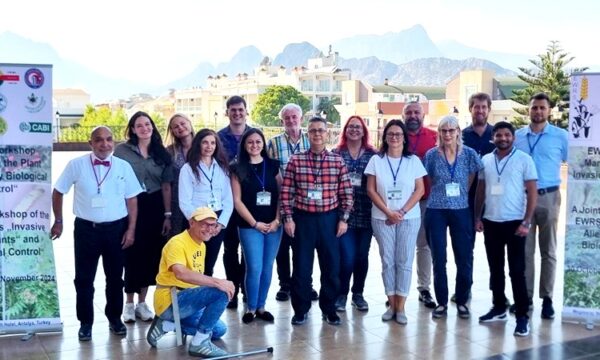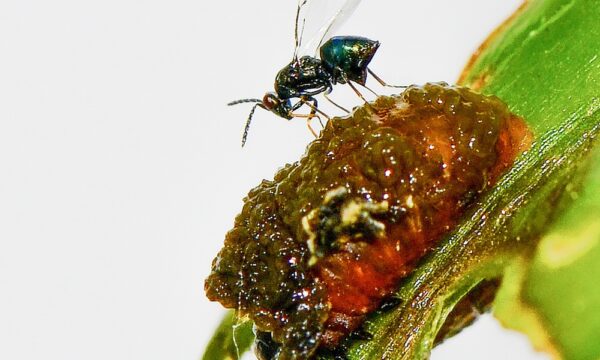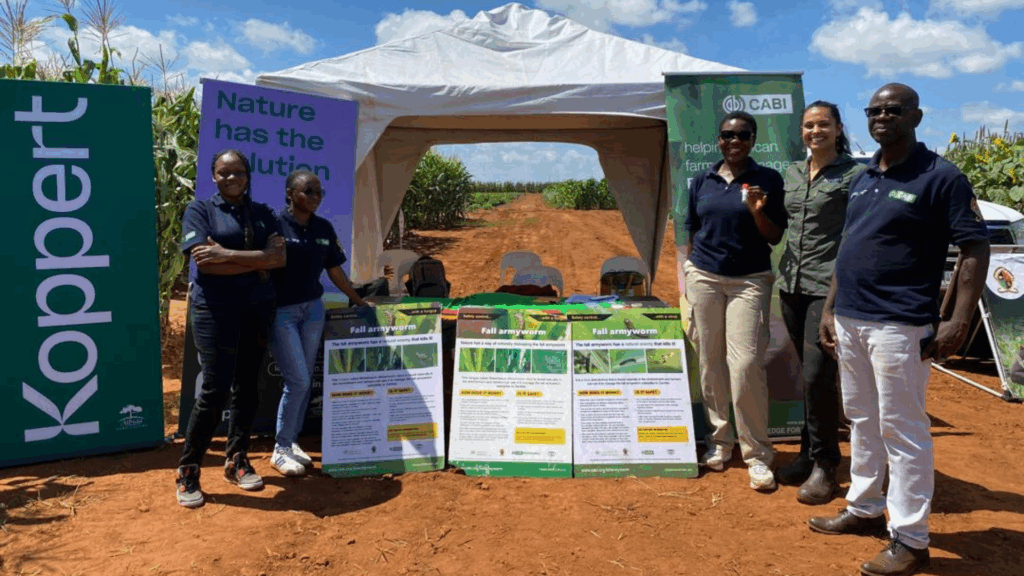
Experts from CABI recently held two field days and an expo in Zambia, showcasing innovative approaches to pest management to 584 farmers, agro-dealers and other stakeholders to help raise awareness of approaches to tackle the invasive fall armyworm (Spodoptera frugiperda) pest.
The field days were part of a project implemented by CABI alongside the Zambia Agriculture Research Institute (ZARI) and the University of Zambia (UNZA). Funded by the Australian Centre for International Agricultural Research (ACIAR), the project aims to support village-based biological control of fall armyworm in Zambia.
The series of events conducted this year included the Zamseed Field Day (26 March), Mkushi Agri Expo (4–6 April), and the ZARI Field Day (17 April). The events drew wide participation and interest. Their focus was to introduce farmers, agro-dealers, researchers, and policymakers to effective, nature-based solutions to combat fall armyworm. These solutions included Metarhizium rileyi, a beneficial fungus, and the fall armyworm-specific commercial baculoviruses Fawligen and Laphy.
Addressing a persistent threat
Fall armyworm causes significant losses to maize – Zambia’s staple crop – with at least 98% of smallholder farmers in the country affected by the pest during every cropping cycle. Estimated annual losses are in the region of US $159 million.
Overreliance on chemical pesticides has raised concerns about resistance, environmental damage, and safety. These field days offered an alternative path – one that aligns with integrated pest management and sustainable agriculture.
Biological control takes centre stage
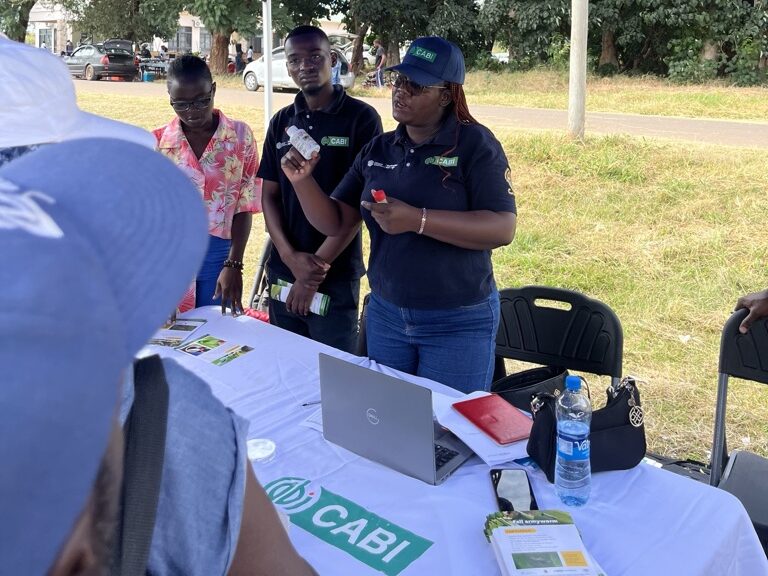
These events were held in key agricultural zones in Zambia. In addition to ZARI, CABI was also joined by the University of Zambia, Koppert and Zamseed. The number of people attending the field days was also promising, with the break-up of participants consisting of:
- ● Total Participants: 584
- ● Total Female: 234
- ● Total Male: 350
- ● Total Youth (<35): 129
- ● Total Adults (35+): 455
Live demonstrations and Q&A sessions during the field days helped participants understand how the biocontrol agents work. Demonstrations included Metarhizium rileyi, a naturally occurring entomopathogenic fungus that infects and kills fall armyworm larvae.
In addition, biocontrol agents Fawligen and Laphy were showcased to attendees. These are viral biopesticides that are specific to fall armyworm and safe for humans, animals, and non-target organisms.
Farmers expressed their appreciation for seeing these tools in action, while agro-dealers attending the field days explored possibilities for stocking these products in their retail space.
Why field day engagement is important
The field days weren’t just about knowledge sharing. They sparked potential partnerships, highlighted the need for wider exposure, and stirred real excitement among stakeholders about the power of biocontrol.
The events helped initiate conversations with new stakeholders who were previously unaware of biocontrol’s potential. Institutions expressed interest in future collaborations, while farmers called for follow-up sessions, practical trainings, and access to products.
Importantly, the events underscored a growing demand for increased visibility and awareness. Despite the promise of biocontrol, many farmers still don’t know these solutions exist. The need for more outreach, demonstration plots, and local champions echoed across all events.
Moving toward greener pest control
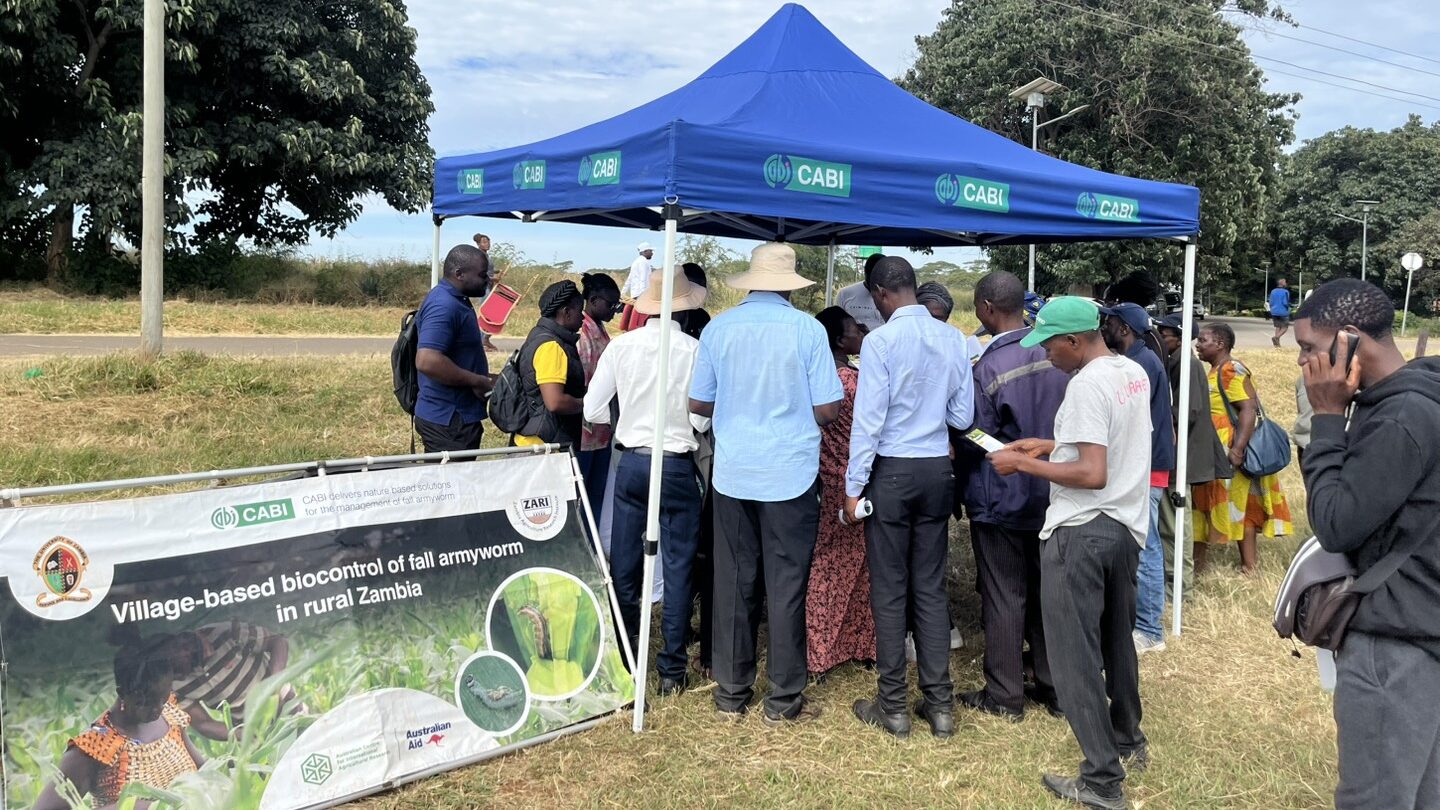
These field days were more than isolated events – they were part of a broader movement to empower farmers with safer, sustainable options to protect their crops and livelihoods. By connecting science with practice, CABI under the ACIAR project and its partners are helping Zambia take meaningful steps toward integrated pest management and climate-smart agriculture.
Next steps include expanding outreach efforts, training more extension workers in biological control, and facilitating availability and access to these tools through our networks. With continued investment and engagement, Zambia is well on its way to building resilient food systems through innovative and environmentally responsible approaches.
More information
Main image: CABI, UNZA, ZARI and Koppert hosted a stand at Zamseed Field Day on 26 March 2025, Lusaka, Zambia (CABI).
Further reading
CABI empowers youth in Zambia to establish businesses in biocontrol of fall armyworm
Related News & Blogs
Our most read blogs of 2025
As 2025 draws to a close, we’ve tallied the numbers to showcase the most popular articles on the Invasives Blog this year, along with a few favourites! This year’s most read blogs capture our collaborations in research and invasive species. We hope you…
18 December 2025


